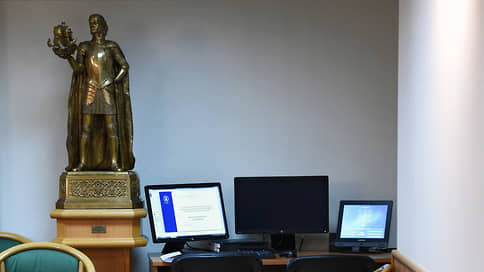Linux lived, Linux is alive, Linux will live – Newspaper Kommersant No. 173 (7374) of 09/20/2022
[ad_1]

The Ministry of Digital Development is preparing new changes to the rules for including software products in the register of domestic software: in order to receive preferences in public procurement and tax benefits, vendors will have to adapt their solutions to Linux operating systems. Now most of the software of accredited developers is based only on Windows. To adapt, many products will have to actually be created from scratch, market participants argue, attracting Linux specialists, who may simply not be enough.
Developers of software included in the register of domestic software may be required to adapt their products to Russian Linux-based operating systems, Aleksey Smirnov, head of the board of directors of Basalt SPO (developed Alt Linux), told Kommersant: “Now a significant part of the software in the registry can work only under foreign operating systems, the new version of the government decree on the prohibition of the admission of foreign software for public procurement provides for a note in the registry about the mandatory compatibility of the software product with domestic operating systems.
The requirement should be introduced in stages for various classes of software, Mr. Smirnov believes: “So, if it can be applied immediately without loss for cryptographic protection tools, office software and database management systems, then it will take about two years for production automation systems.” In case of non-compliance with the requirements, the developer will be excluded from the register, he specified. The Ministry of Digital Development confirmed to Kommersant that such an initiative is being developed, adding that it is planned to determine the requirements for a compatible operating system.
Now there are about 13.9 thousand products and 4.4 thousand copyright holders in the software registry. They receive preferences in public procurement, the opportunity to reduce income tax from 20% to 3%, insurance premiums – from 14% to 7.6%. When selling software, you do not need to pay VAT.
Natalya Selina, Director of Government Relations of Astra Linux OS developer, Astra Group of Companies, supports the initiative. In her opinion, the developers whose products are included in the registry should adapt them to the Russian OS: “This is the only way we can form a full-fledged domestic IT ecosystem.”
Deputy General Director of Red Soft (Red OS) Rustam Rustamov also supports the initiative, but admits that as a result some programs will have to be created virtually from scratch: “Including, for example, banking systems that have been written by Windows for twenty years “. Dmitry Komissarov, director of product development and development at New Cloud Technologies (MyOffice office suite), confirms that if the software initially worked only with foreign operating systems, its adaptation to Russian systems on Linux “will require investments comparable to developing a product with zero.”
The developers, for their part, emphasize that 95% of computers and laptops in Russia run on Windows. “The share of Linux-based devices is growing, but mainly due to deliveries to government agencies, the public sector and some state corporations,” one of Kommersant’s interlocutors clarifies. “Russian application software developers have been writing software for the corporate segment under Windows and Oracle since their inception, because that they were and de facto remain the basic standards in it.
In order for vendors to start developing the second branch of products for Linux, restrictions are not enough, Kommersant’s source emphasizes, real market demand must appear: “Then a second team of developers specializing in Linux will be recruited, which, by the way, are very few. If there is no demand, the costs will have to be subsidized by the state.” Customers, according to the interlocutor of Kommersant, despite sanctions and restrictions, hope to “wait out on current versions of Windows” in the coming years.
The head of the board of directors of Almi Partner office software developer Mikhail Lebedev, however, believes that the adaptation of 90% of the software from the registry will not require large investments or long-term development. “The other 10% is typically CAD and other engineering software, and will actually require building the product from scratch.” He also believes that developers will not need new subsidies to adapt their software: “the current support measures are enough.”
[ad_2]
Source link





